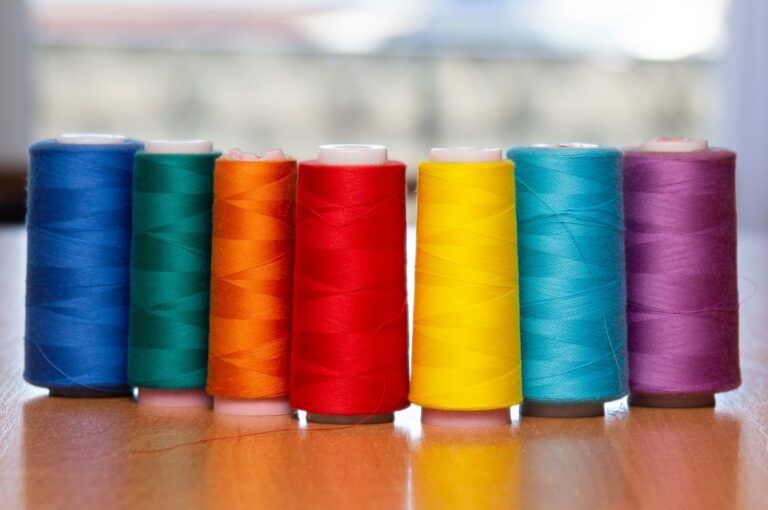
[ad_1]
Poor demand from the weaving industry and cheaper cotton drove yarn prices south ward in the Ludhiana market. “The market is still lacking confidence, but buyers are confident about the bottom line of cotton yarn prices. The entire textile value chain needs to buy at comfortable prices so, they can ensure availability of raw material for the full year,” Gulshan Jain, a trader from Ludhiana market, told Fibre2Fashion.
North India’s cotton yarn prices declined today as post-Diwali sentiments continue to remain weak. The prices dropped by ₹10-15 per kg in Ludhiana and Delhi due to cheaper cotton and poor demand. Cotton prices fell by ₹300-350 per maund of 37.2 kg in north India. Panipat’s recycled yarn also witnessed a bearish trend despite possible supply disruption.
In Ludhiana, 30 count cotton combed yarn was sold at ₹300-310 per kg (GST inclusive), according to Fibre2Fashion’s market insight tool TexPro. 20 and 25 count combed yarn were traded at ₹290-300 per kg and ₹295-305 per kg respectively. Carded yarn of 30 count remained steady at ₹275-285 per kg.
In Delhi, demand remained weak as buyers and sellers were waiting for buying to improve from the downstream industry. Cotton yarn eased by ₹5 per kg for major counts and varieties. “The market is facing a lack of confidence. Buyers were waiting for breakthrough in buying from the entire value chain. New crop arrival and decline in prices will encourage buyers to replenish their stocks,” a trader from the Delhi market told Fibre2Fashion.
In Delhi, 30 count combed yarn was traded at ₹295-300 per kg (GST extra), 40 count combed at ₹325-330 per kg, 30 count carded at ₹275-280 per kg and 40 count carded at ₹310-315 per kg, as per TexPro.
Panipat’s recycled yarn market witnessed a downward trend in a few counts and varieties of recycled yarn. However, many other counts and varieties of yarn were traded at previous prices. According to the traders, cotton comber prices did not ease in line with cotton and cotton yarn as spinning mills did not start combed yarn production from which comber is produced as a by-product. Coal fired boiler industry will be restricted in Panipat due to stringent regulations imposed to tackle severe pollution in Delhi NCR. It will affect yarn dyeing activities which will reduce supply. But slower demand is not likely to push prices up.
In Panipat, 10s recycled yarn (white) was traded at ₹100-105 per kg (GST Extra). 10s recycled yarn (coloured – high quality) was traded at ₹110-115 per kg, 10s recycled yarn (coloured – low quality) at ₹80-85 per kg, 20s recycled PC coloured (high quality) at ₹115-120 per kg and 20s recycled PC coloured (low quality) at ₹100-105 per kg. 30 count recycled yarn was sold at ₹155-160 per kg. 10s optical yarn was priced at ₹100-110 per kg in the market. Comber prices were ruling at ₹120-125 per kg. Recycled polyester fibre (PET bottle fibre) was at ₹88-90 per kg.
North India’s cotton prices dropped by ₹400-450 per maund of 37.2 kg since Diwali Muhurta trading. Cotton was traded at ₹6,100-6,200 in Punjab, ₹6,100-6,200 in Haryana and ₹6,200-6,250 per maund in upper Rajasthan. The prices were recorded at ₹61,000-62,000 per candy of 356 kg in lower Rajasthan.
According to the traders, cotton prices came down due to the season’s trends amid poor demand from the spinning industry. Cotton arrival was still limited as farmers are not interested in selling at current prices. Higher prices in the previous season raised their expectations regarding cotton prices. Cotton arrival was around 14,000-15,000 bales in the region.
Fibre2Fashion News Desk (KUL)
[ad_2]
Source link